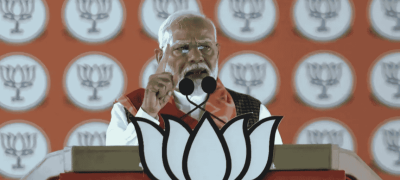In recent years, Muslim-majority countries, notably Pakistan and Turkey, have garnered significant global attention for their military prowess, yet their seemingly muted response to the ongoing atrocities and expansionist agenda of Israel against Palestine has raised eyebrows worldwide. Despite continuous appeals from the people of the Gaza Strip and widespread international concern, the lack of proactive initiatives by these Muslim nations remains a perplexing paradox. This article aims to explore the reasons behind this silence and advocates for a more assertive stance from Muslim-majority nations to address the humanitarian crisis in Palestine.
Military Might vs. Moral Obligations:
Pakistan and Turkey have consistently ranked high in global military power indices, showcasing their ability to influence regional geopolitics. However, the disparity between military might and the perceived lack of action in response to the plight of the Palestinian people underscores a disconcerting gap between geopolitical interests and moral obligations.
It is essential to recognize that military strength alone does not guarantee a proactive stance on humanitarian crises. The reluctance of these nations to take decisive action against Israel’s violations in Palestine raises questions about the prioritization of strategic interests over the ethical responsibility to protect innocent lives.
Also Read: Pakistan Army Set for Deployment During General Elections
The Political Tightrope:
One plausible explanation for the hesitancy of Muslim-majority countries is their precarious diplomatic position. In a world where alliances and geopolitical dynamics are constantly shifting, countries like Pakistan and Turkey must navigate complex relationships with both Western and regional powers. This delicate balancing act often hinders their ability to take a firm stance on sensitive issues, such as the Israeli-Palestinian conflict.
Fear of Repercussions:
Another factor contributing to the apparent inaction may be the fear of reprisals from global powers, particularly the United States and its allies, who have historically supported Israel. Economic sanctions, political isolation, or military intervention are all potential consequences that these nations may wish to avoid. However, prioritizing self-interest over the urgent need to address human rights violations weakens the moral fabric of the international community.
Domestic Priorities:
Internal challenges and domestic priorities also play a role in shaping the responses of Muslim-majority nations. Governments in these countries may face pressing issues such as economic instability, political unrest, and internal conflicts that divert attention and resources away from external crises. While these challenges are undoubtedly significant, they should not serve as excuses for turning a blind eye to the suffering of the Palestinian people.
A Call to Action:
The silence of Muslim powerhouses on the issue of Palestine is not only a disheartening reality but also a call to action. It is imperative for these nations to recognize the moral imperative of standing up against injustice, regardless of the geopolitical complexities involved. History has shown that silence in the face of oppression only perpetuates suffering and emboldens the oppressor.
Muslim-majority nations, armed with military strength and diplomatic influence, have the capacity to spearhead international efforts for a just and lasting resolution to the Israeli-Palestinian conflict. By leveraging their collective influence and engaging in diplomatic initiatives, these countries can work towards ending the cycle of violence and facilitating a peaceful coexistence between Israel and Palestine.
The disparity between military prowess and the apparent reluctance to address the atrocities in Palestine underscores the need for Muslim-majority nations to reassess their priorities. It is time for these countries to rise above political considerations and take a principled stance against injustice. The international community, including Muslim leaders, must recognize the urgency of the situation in Palestine and work collaboratively towards a just and lasting resolution that respects the rights and dignity of all parties involved. The time for silence has passed; the time for action is now.









